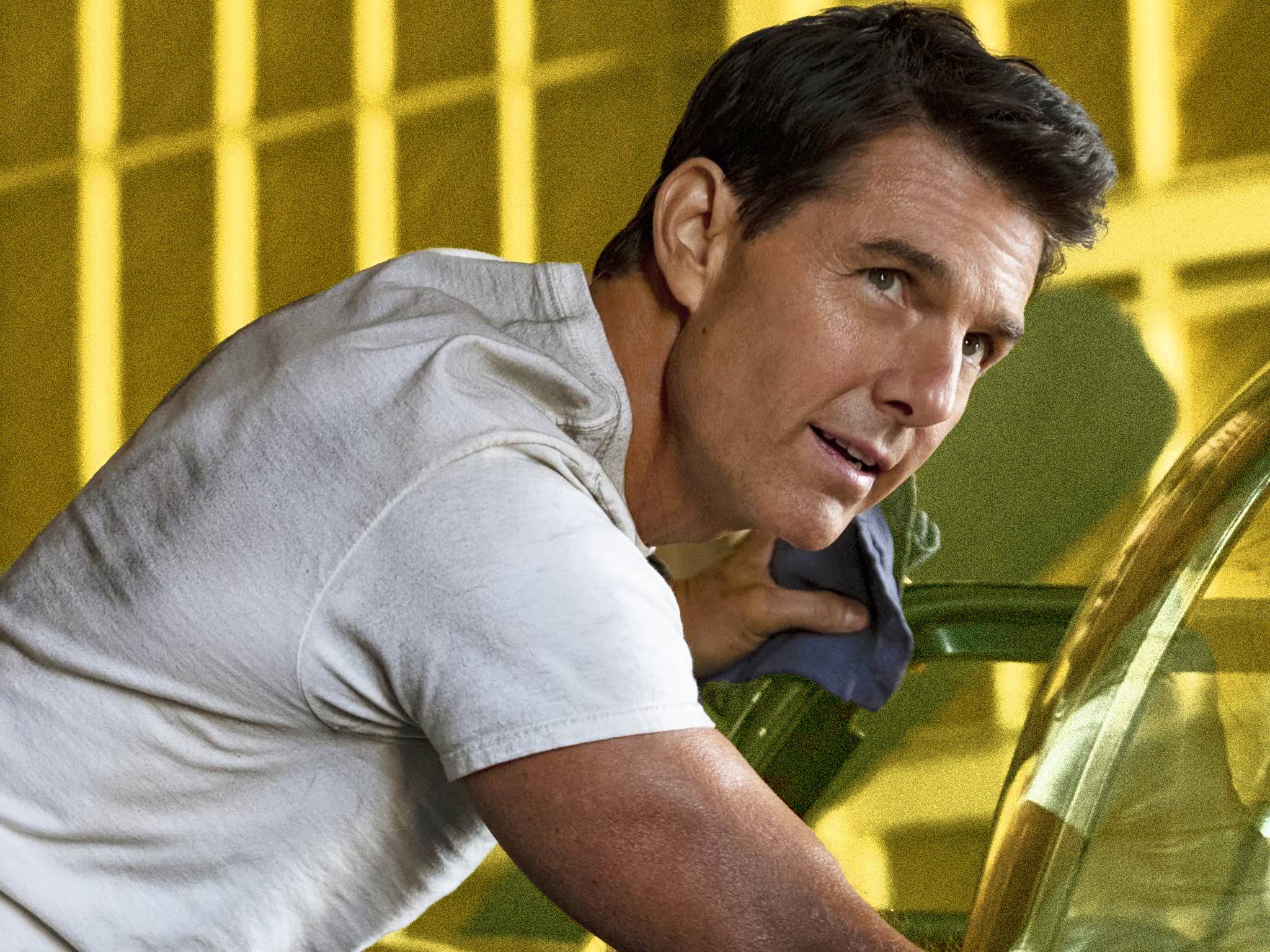Top Gun: Maverick – Why Tom Cruise’s blockbuster sequel should win the Oscar for Best Picture
Inexplicably, one of the biggest films from last year is a bit of an underdog at this week’s Oscars despite a handful of nominations. According to Adam White, it really ought to be leading the pack


I spent a lot of Top Gun: Maverick studying Tom Cruise’s face. It’s a deceptively interesting one – either eerily smooth or comfortingly weathered, depending on the scene; a fitting testament to a man whose intergalactic fame has outlasted seven US presidents and hundreds, if not thousands, of fly-by-night movie stars. Amid the whooshing racket of torpedoes and jet engines, it’s Cruise who emerges as the film’s most compelling special effect. Few other celebrities feel as curiously enigmatic as they are culturally ubiquitous. You can’t quite believe he’s real. He still might not be.
Cruise is up for an Oscar this weekend as a producer on Maverick, meaning he’ll take one home if the film wins Best Picture. He didn’t get the Best Actor nod that at one point seemed predestined, but oddly, Best Picture feels like an appropriate – even preferable – alternative. For Maverick is Cruise. Cruise is Maverick. Playing a confident but battle-weary naval captain and test pilot, he takes full command of every scene and every stunt. Never have a star and their movie felt quite so one-and-the-same.
The original Top Gun is a bit of jingoistic kitsch so deeply heterosexual that it spins back around until it’s suddenly the gayest movie ever made. It’s about a fleet of cocky naval pilots who play beach volleyball and like to shoot at things, the film’s aerial pyrotechnics and man-sweat soundtracked by bombastic synths and Kenny Loggins. To call it “good” feels incorrect – it’s more a historical artifact or a museum piece than something of pristine quality. But somewhere in the 36 years between its release and the arrival of its sequel, its earnest, stylised melodrama became something we yearned to watch again.
Top Gun: Maverick is the best movie of last year because it feels out of time, and it knows it. Cruise’s Maverick is introduced as an Eighties relic, whose hand-operated approach to combat is at risk of being phased out in favour of drones and computers. There is a significant love story between Maverick and his one-time teenage sweetheart Penny (Jennifer Connelly), which seems to exclusively play out against sunsets. Like the original, the film has a big, soaring theme song – this time by Lady Gaga rather than Berlin – which seems to echo through its soundscape before fully serenading the cast and crew over the end credits. Inexplicably, classic cinematic staples like these – Character! Romance! An actual score! – have become rarities. We need to hold on to them tight when they pop up again.
It’s for this reason that the absence of Top Gun: Maverick from awards chatter seems a bit weird. Nothing released last year felt as traditional in its blockbuster bonafides while also making an absolute boatload of money and earning glowing reviews. Yet it’s somehow been outgunned in the home stretch by practically all of its Best Picture competitors, notably the under-the-radar First World War movie All Quiet on the Western Front – a film deemed the closest rival to an assumed Everything Everywhere All at Once victory on the night. How did Tom Cruise become an awards-season underdog?
Watch the movie itself and there’s a titanic amount of technical prowess at work: stirring sound design, stunts you can’t quite believe they pulled off, the kind of shuddering wind power that makes Cruise’s cheeks all flappy when he fires off on his motorbike. But I was also floored by the film’s interest in age, and masculinity, and the fragility of the human body.
The reunion between Maverick and Val Kilmer’s Iceman, the latter dealing – like Kilmer – with the effects of throat cancer, feels like a film in conversation with itself. Here are two movie-star peers who’ve experienced career highs and career lows and much personal tumult, and are somehow still standing. “It’s time to let go,” Iceman tells his old friend. “I don’t know how,” is Maverick’s cool response, as defiant as it is tortured. For Maverick, endlessly reaching for the impossible is as much an aspiration as it is a trap. Cruise, too, potentially.
How Top Gun: Maverick turned out quite so well remains a bit of a mystery, when legacy sequels and movies stuck in development hell for decades tend to arrive with a whimper. But it feels tweaked and perfected rather than overworked, and so confident in its approach to action and character that it’d be impossible for awards bodies to overlook it.
That’s also unique in itself, considering how unusual it is to see crossover between the Oscars and actual box-office success. But should we really be surprised? Cruise knows movies. He understands that blockbuster filmmaking isn’t just an art, but a science; that great films depend on feeling as well as spectacle.
Join our commenting forum
Join thought-provoking conversations, follow other Independent readers and see their replies
Comments


Bookmark popover
Removed from bookmarks